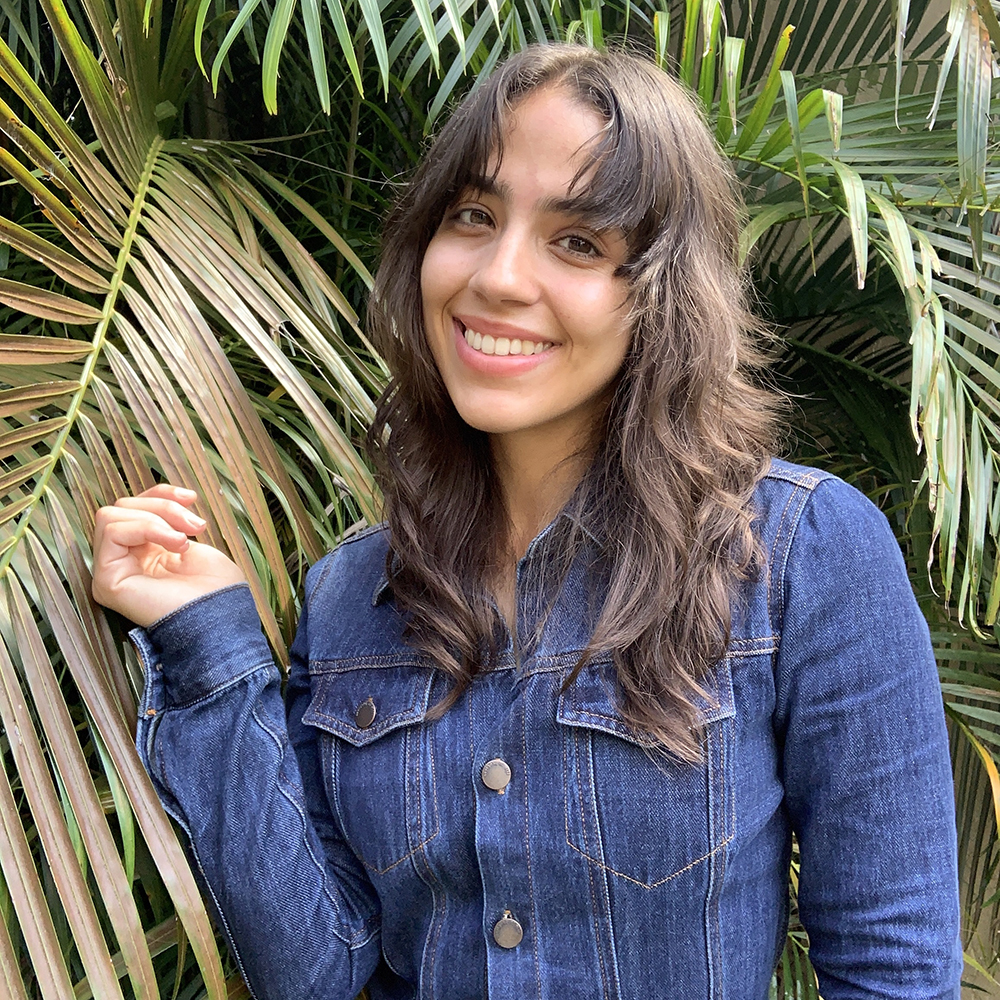ACE INTERVIEW: Saoirse Exton on Activism in the Irish Climate Movement
Raquel Martinez
|January 15, 2022
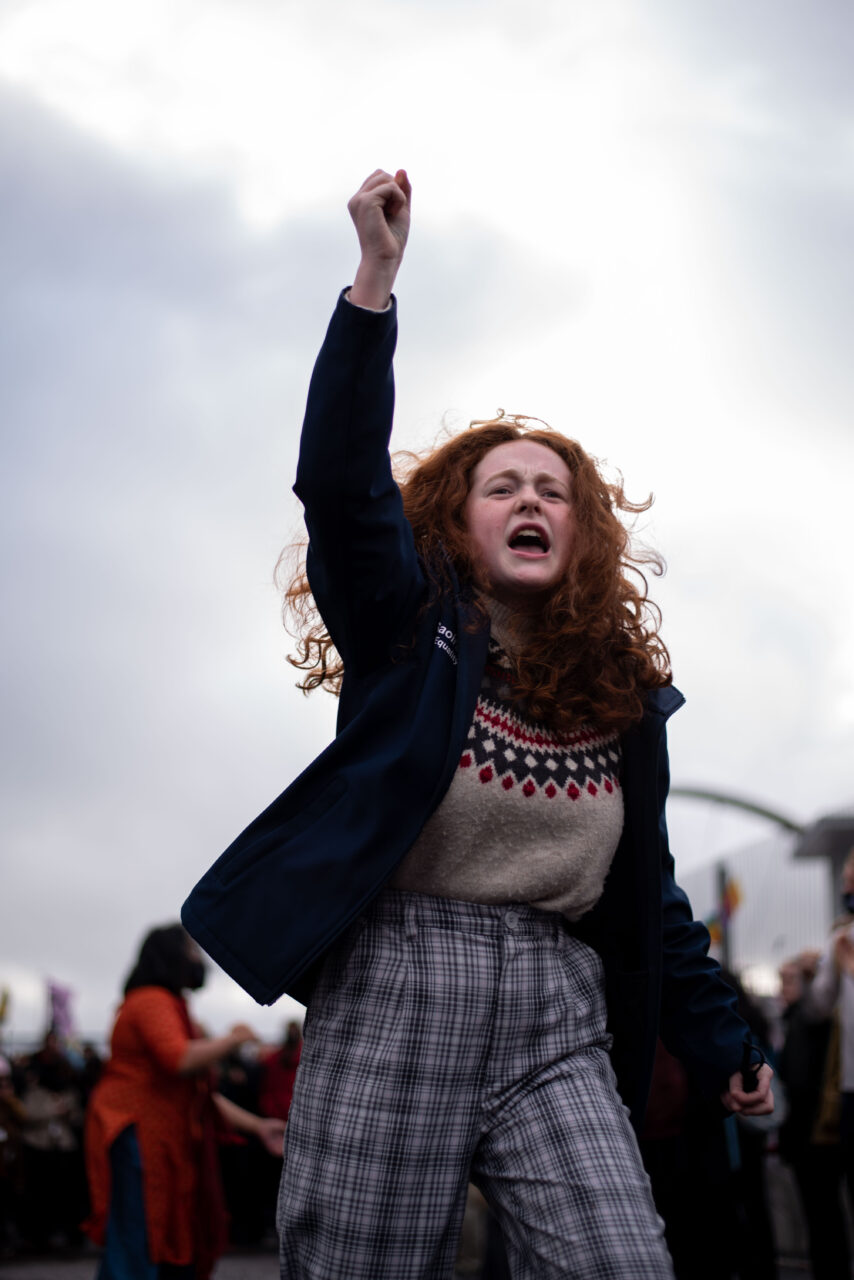
Saoirse Exton (she/her) is a 16-year-old climate activist based just outside of Limerick City, in Ireland. She began her journey in climate activism when she was 13, with the activist group Fridays for Future. She’s participated in the Global Climate Strike movement, taking part in weekly strikes outside of government buildings and leading Global Strikes in the city. During the pandemic she’s had to move her activism online, so for the past two years, she’s become involved with a variety of other activist groups and puts the most work into her role as Equality Officer of the Irish Second-Level Students’ Union where she works on student and equality-related policy on a national level and with governmental bodies.
Raquel Martinez (RM): When did you first learn about the climate crisis? What was your immediate reaction?
Saoirse Exton (SE): I don’t remember when I first found out about the climate crisis because I knew of its existence even before I realized just how severe it was. Before climate activism, I used to push the idea of the climate crisis from my mind because of how concerning it is, something I think a lot of people have to do to get by in a world already filled with a vast plethora of issues. I believe it panicked me because I felt like a small flea in a world that would never listen to me.
RM: How did you first get involved in the climate movement?
SE: I first found out about the climate movement through my mother. She showed me videos of the big early 2018 strikes that happened in Australia and I was jealous that they were able to have such youth power. I immediately wanted to get involved, and got in contact with local climate activists and climate activist groups, who encouraged me to just go for it! As well as that, 2018 marked the year when Ireland voted for choice, and reproductive rights were reinforced in my country. The movement that grew up around it was completely astounding for a 12/13-year-old me and I felt as if I couldn’t be a part of it because I was a young person. After the referendum passed, I realized I couldn’t wait to be involved, and I was looking for something else, some other movement to be involved in and to make a change. The climate movement became all-encapsulating for me, not just environmentalism, but climate justice.
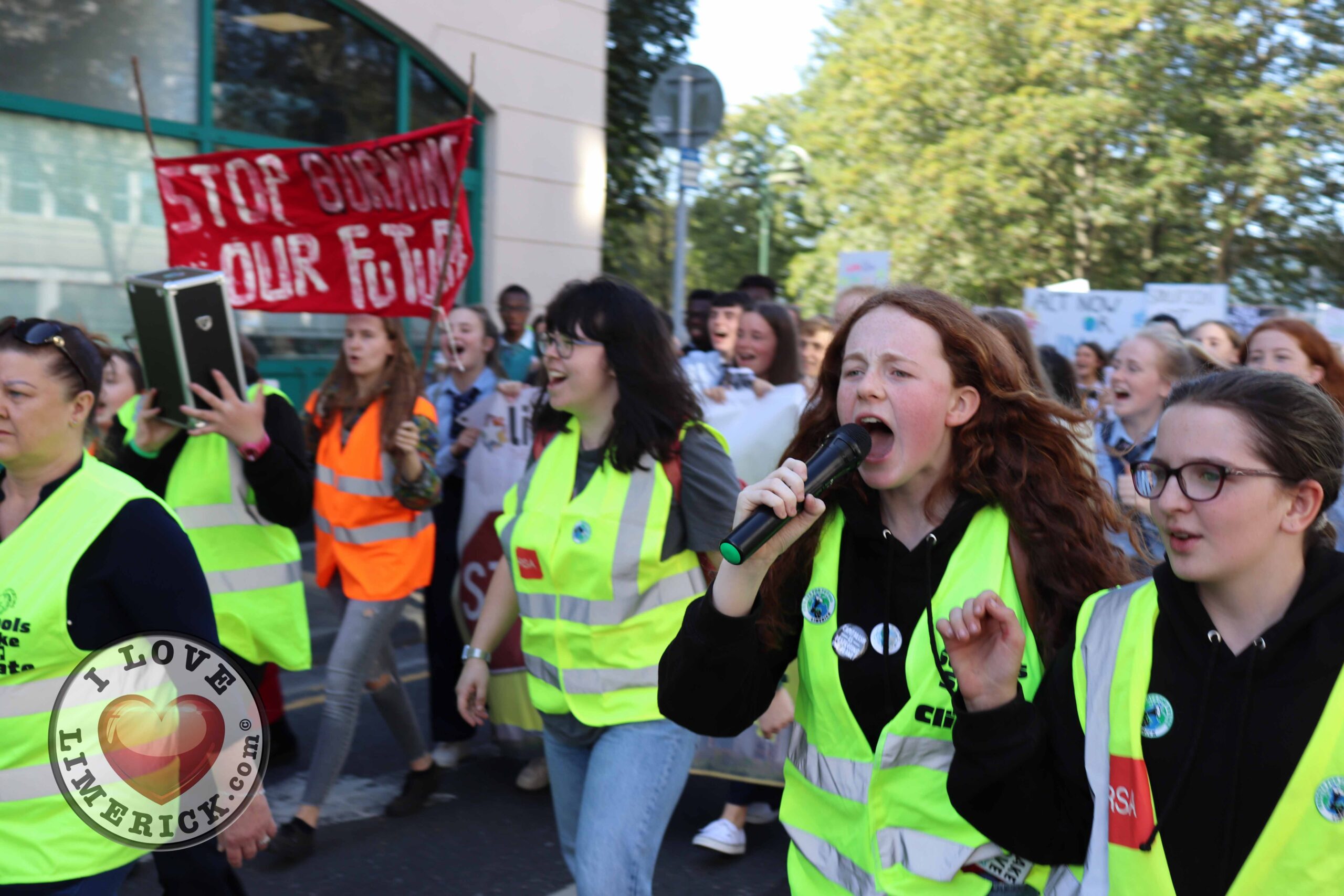
RM: Could you tell us about your work with Fridays for Future (Limerick)?
SE: Unfortunately due to Covid-19 and stress from school, climate activism in Limerick has had to take a temporary pause. But before the pandemic, we striked every Friday, in front of government buildings as well as coordinating Global Strikes that got up to 1000 people (large for a climate protest in a city such as Limerick). We were also involved in local policy and other environmental advocacy groups, such as the declaration of a Climate and Biodiversity Emergency in Limerick City and County. Although Limerick is a small city, it has a history of activism and the fight for workers’ rights, in particular, so it has always felt like a natural progression in our climate activism, and the majority of responses we received were positive.
RM: How has living in Ireland informed and impacted your climate activism
SE: Ireland is a strange country because we are often looped in with larger European countries such as Germany and Sweden, or with Britain and although we share many of the capitalist views and visions, like profit maximization at any cost, these are hangovers from our colonization. I recently read a book entitled ‘Irish and Ecology’ by Michael Cronin, which discusses the importance of reconnecting with the Irish Language (Gaeilge) to gain a deeper understanding and connection with the land itself. Gaeilge is often thought to be a dead language, but it is far from dead. Although in the minority, there is a passionate number of people across the country who uphold the importance of maintaining the language. Gaeilge, or something resembling Gaeilge, has been recorded in this country for 2000 years, but only because pre-Christianity Ireland maintained an oral tradition (béaloideas). So for at least 2000 years (but most likely something over 6000 years), the residents of Ireland have been documenting every nook and cranny with our words. I believe living in Ireland has shaped my understanding of the importance of reconnecting with Earth as sacred, and relearning our native languages in order to understand the world around us more deeply. Reviving this connection, through mythology and language, is a way to fight against the neo-colonialism of globalism and realize that the land is so much more important than the thing we stand on, as well as our symbiotic connection with it.
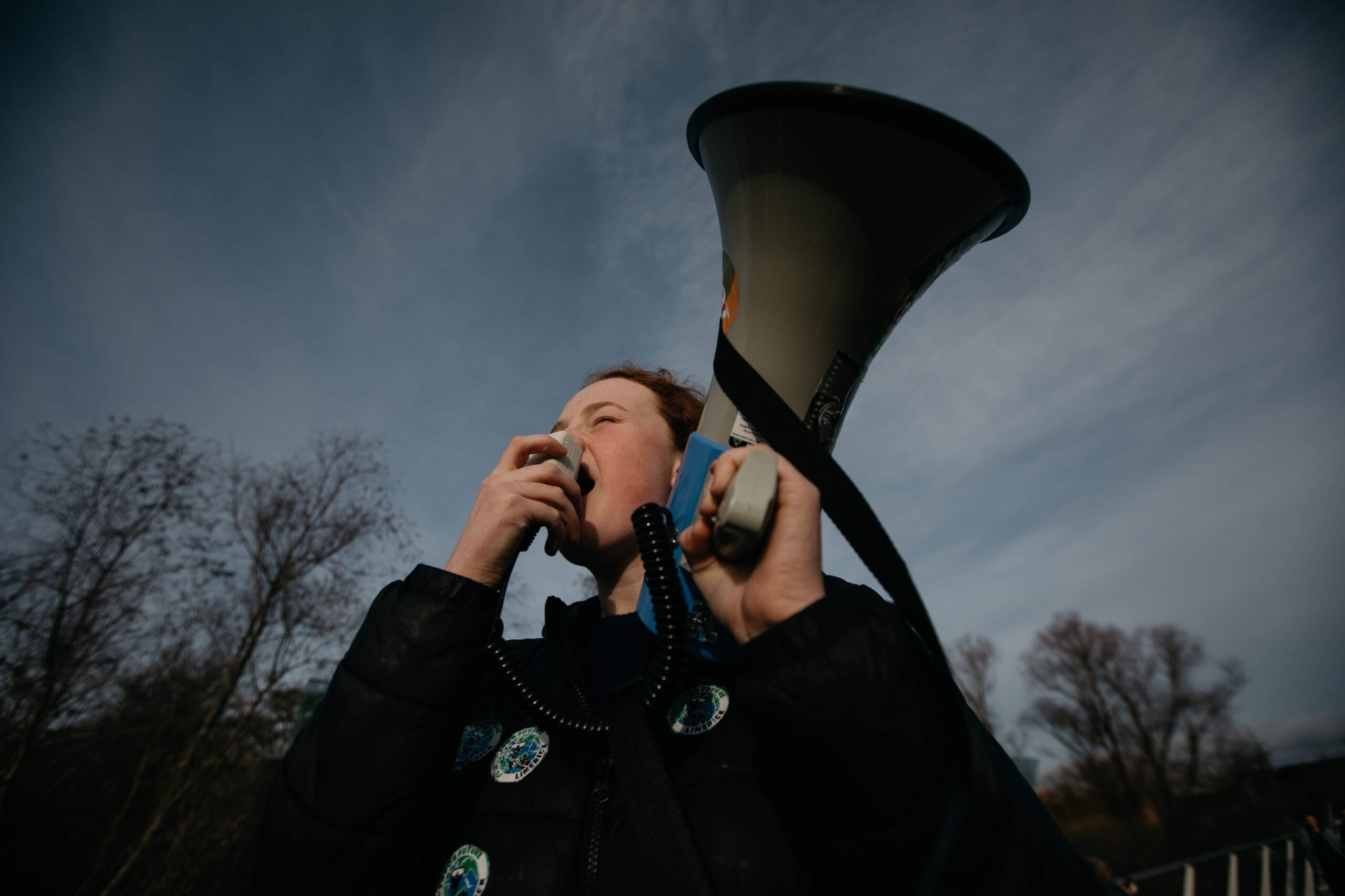
RM: What has organizing as part of Fridays for Future been like? How have others responded to the movement?
SE: I believe it is difficult to truly know that the impact that has been made is under the label of Fridays for Future, or whether it is the people who have worked tirelessly for decades who have finally received recognition because of the fact that the sheer velocity of people marching on the streets has pushed environmentalism and climate justice into the media and therefore into the faces of decision-makers. I believe FFF provided a crucial turning point in the climate debate, which brought the sheer catastrophe of the climate crisis to the doors of everyday people who normally might not have the time or inclination to find out this information for themselves. This meant that policy-makers were scared into making somewhat progressive action plans and quickly declaring climate emergencies and it also meant that indigenous activist groups, for instance, received more attention from a previously ignorant group of people. Although FFF was instrumental in making me who I am, I am incredibly critical of it. From the outside, we are hailed as change-makers, as leaders of the future, and although this is true, it is often ignored that we are children. The majority of the most dedicated climate activists are (or at least were at the beginning) children and we have entire other lives that are going to the wayside just for climate action. This burnout is orchestrated by the system generally, but also because the flawed work etiquette of FFF almost demands that activists should be working 24/7 or not be working at all. This is completely unsustainable because it means that the symptoms we are only starting to feel now, the slow slackening of pressure on public officials, the diminishing number of people joining on the streets, the same words coming from the mouths of the same people, are going to be exacerbated until the movement inevitably falls apart. Already, because of this essential demand to be a perpetual climate activist and the hierarchical rifts this idea creates, many people have stepped back – people who are extremely valuable to the movement but literally cannot continue contributing anymore. As someone who has grown up in this movement, it is difficult to accept that if we continue the way we are going we will implode, and I am desperate to change this, but it is difficult to change something that you have not broken, as all activists, and especially youth activists, are desperately aware.
RM: I saw you attended COP26 (it was so nice to meet you, by the way!) – What are some takeaways from the conference that have motivated and fueled your climate activism? What are some that have troubled you?
SE: Two months later, I am still reeling from the effects of COP26. The conference only made me feel hopeful in the incredible and dedicated people across the world who are so dedicated and eager to make a change, that they will sacrifice their UN-appointed badge and chant on the streets. There was one day where we walked out from the conference and chanted all the way, and we danced and held hands and chanted in each other’s languages. It was truly beautiful and empowering. I think the word ’empower’ or ’empowering’ is often overused, but in this case, it truly felt as if I was a battery and I had been charged full of possibility, possibility for a better movement, a better society, a better system, a better world. But naturally, on the flipside, I felt terrible coming away from COP26. It is hard to be optimistic when world leaders consistently ignore the science and anyone who remotely has a stake in this crisis. It is difficult to hear the stories and songs of those for whom capitalism isn’t just economic, it’s a social issue that has killed their people systematically and then return to a conference that polluted more than COP25. I also saw Boris Johnson, and he tends to leave a bad taste in the mouth wherever he goes :))
RM: What role do you think young people play in the climate movement?
SE: I think young people are the most important group in the climate debate. They are the ones that are going to deal with everything that happens, and yet no young person has had any part in the system older generations insist on maintaining. By informing themselves in their youth, young people are creating voters of the future who will be measured and thoughtful about who to place their trust in. By telling the stories of communities across the world who are less privileged than Ireland, let’s say, young people are creating connections that could potentially last generations, and if worked upon by these young people when they inevitably become policymakers and lawyers, ecologists and mythologists, philosophers and psychologists, business owners and farmers, it could potentially end systemic discrimination in many countries who claim that institutionalized discrimination doesn’t exist. In 2019, we were on the precipice of change. And although Covid-19 may have sucked the life out of that, and rightfully so, for we have to grieve to be able to continue working, we still have the potential to really take this action, this anger, this empowerment by the horns and do something with it that can solidify systemic change for all.
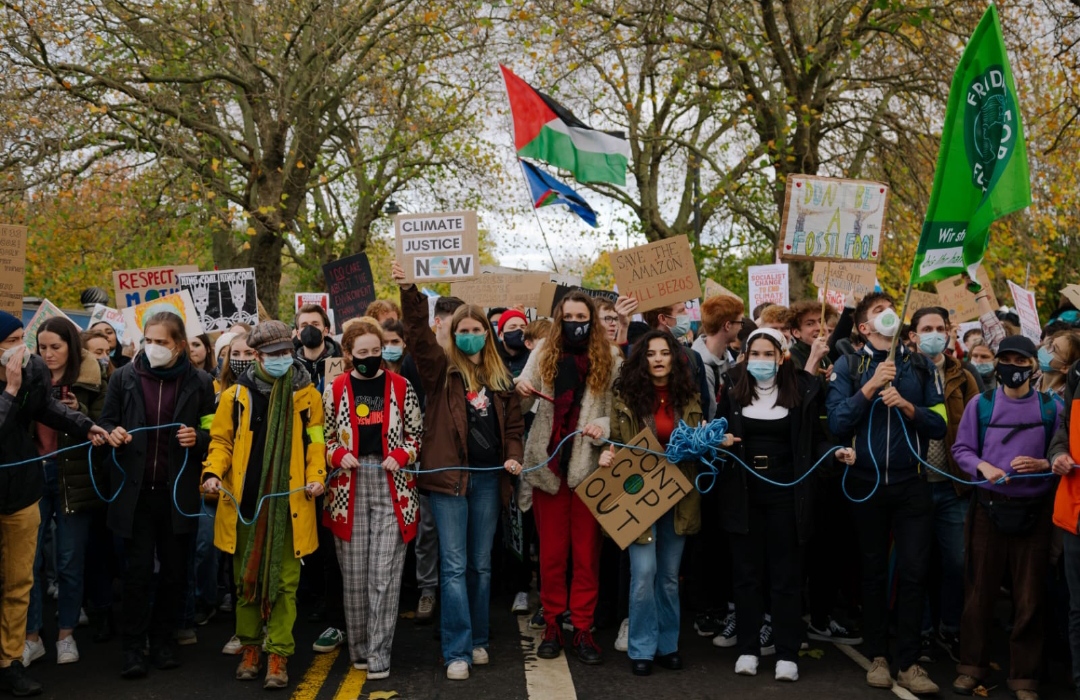
RM: What are some tips you could provide young people who are looking to follow a similar path in the climate movement as you have?
SE: I would urge them to just go for it. Get a sign and sit down, whether it’s for a photo, or whether it’s on the streets. Whether you’re there for nine hours or for one, it doesn’t matter. Simply being seen, spreading awareness not just of the issue but of your anger, is the most powerful contribution to the movement. It doesn’t matter if you aren’t or can’t be involved in an international organisation, working on a policy team, or a media team, or like, the most important part of an activist movement is the grassroots, so make yourself the grassroots! Remember that fame is meaningless and that power comes from emotion, words, art or any outlet you can think of.
RM: Who are some of your favorite youth activists and/or conservationists and where can we find them?
SE: From Ireland: @upnorthitgetscold (Jessica Dunne), @tessieishungry (Theresa Rose Sebastian), @salim.kajani (Salim Kajani), @heather.gets.climatey (Heather Doyle), @jamietheactivist (Jamie McElwain).
Environmentalists/Conservationists: Naomi Klein is a big one, Lorna Gold, Michael Cronin (as mentioned above).
From around the world: @pamela__ea (Pamela EA), @ericdnjuguna (Eric Njuguna), @iris4action (Iris Zhan), @camila.gcolistro (Camila Colistro), @malaika_collette (Malaika).
RM: How can individuals support your work?
SE: At the moment, the best thing people can do is follow me on Instagram at @saoirse_exton! I often share other campaigns and activists on my Instagram, and it’s great to have a broader network of people to engage with!
RM: Thank you for joining us!
Photos courtesy of Saoirse Exton, Pamela EA and Seán Curtin, True Media.
Answers may have been edited for length.
Want to read more? Check out the ACE Blog!
Join our Youth Action Network
More Blog Posts

Unnatural, Not Unprecedented
For two weeks, residents of Southern California endured a waking nightmare. Parents raced against time – hurrying down the driveway …
Read MoreCrafting a Vision for the Future: My Experience at LCOY USA 2024
Dry and sunny Tempe, Arizona where temperatures have been over 100 F for 113 consecutive days, delegates gathered to attend …
Read More
7 Ways to Weatherproof Your Home on the Cheap (+1 Not-So-Cheap)
As colder weather sets in, understanding how to weatherproof your home is key to maintaining warmth and reducing energy costs. …
Read More
